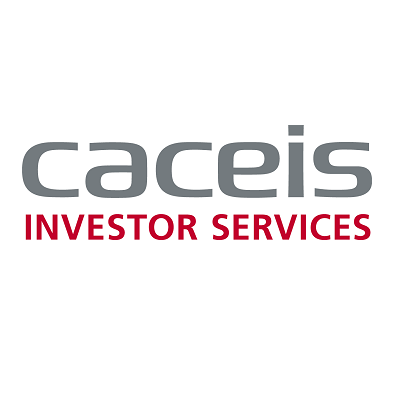So long and thanks for all the fish
According to Asset Servicing Times, the word ‘fish’ appeared almost three times as often as ‘financial services’ in the 1,200 pages of the recently signed Trade & Cooperation Agreement with the EU. The title of Douglas Adam’s humorous fourth novel, "So long and thanks for all the fish", a parting shot from the dolphins as they departed from planet earth, therefore seems oddly appropriate.
Be in no doubt, however, the impact of the UK’s decision to leave the European Union (EU) at the end of December 2020 will have some major ramifications – much of which we already know, but some has yet to emerge.
As the UCITS and AIFM passporting regime has fallen away, uppermost in the minds of many in the financial services industry is the issue of equivalence. Equivalence being the decision by one state to recognise another state’s legal requirements for regulating ‘a good’ or ‘a service’, even though they may not be the same. Divergence of regulatory standards between the UK and the EU is going to form part of the equivalence considerations.
Unequal footing
Although the temporary permissions regime put in place by the FCA continues to allow EU-based asset management firms to access the UK market until 2023, this excludes new fund launches from the beginning of 2021. Furthermore, the EU has not agreed on the area of equivalence, creating uncertainty for firms with UK domiciled funds accessing EU markets. Earlier this month, the UK and EU agreed on a new forum on cross-border financial market regulation, which could help unlock equivalence talks. But there’s still a way to go.
 Consequently, many asset managers continue to make plans that cater for a wide range of scenarios as they wait for final agreement between the UK and EU on financial services. What is also emerging quite quickly is a new bias within the UK fund-buying community towards locally domiciled funds, forcing companies who had been selling Dublin or Luxembourg domiciled funds into the UK to consider launching UK domiciled funds if they want to sell into this large market.
Consequently, many asset managers continue to make plans that cater for a wide range of scenarios as they wait for final agreement between the UK and EU on financial services. What is also emerging quite quickly is a new bias within the UK fund-buying community towards locally domiciled funds, forcing companies who had been selling Dublin or Luxembourg domiciled funds into the UK to consider launching UK domiciled funds if they want to sell into this large market.
“It’s evident from industry conversations that a number of firms using European fund structures to distribute into the UK are now seriously considering creating equivalent UK structures to circumvent ongoing uncertainty to future proof their distribution” – Matthew Ives, Business Development Director, UK Funds.
Navigating Change
As the financial services industry works through these challenges, CACEIS has held conversations with a selection of UK asset managers with UK-domiciled, Luxembourg and Ireland domiciled funds. In Europe and the UK, CACEIS operates Dublin, Luxembourg and UK-domiciled fund structures for clients wanting to access the UK and EU fund markets. This has given us a deep perspective on the challenges that asset managers face when navigating the current arrangements.
Value for money and cost control
Asset managers have told us that costs will likely rise if additional fund structures become necessary to access the same client channels and markets in a post-Brexit world. Value for money and cost control across fund administration will, therefore, become key. There will also be a stronger focus on service excellence as fund groups seek assistance in navigating the more complex landscape.
Flexibility
Even if an equivalence decision is made, however, there are concerns that this could be withdrawn at some point in the future. To maintain flexibility and secure distribution capabilities, this has led some asset managers to think about creating parallel funds in local jurisdictions, especially those that want access to the substantial UK market. It is notable that at the end of 2019, UK domiciled funds represented 41% of the total UK managed funds market*, and we expect to see this home-bias increase
 Furthermore, as we approached Brexit, some firms in the UK transferred European client assets to overseas domiciled funds to ensure that their clients could continue to be serviced regardless of the negotiation outcomes. The current state of play means we are seeing some appetite from UK asset managers with locally domiciled funds to set up cross-border structures so they can maintain access to Europe.
Furthermore, as we approached Brexit, some firms in the UK transferred European client assets to overseas domiciled funds to ensure that their clients could continue to be serviced regardless of the negotiation outcomes. The current state of play means we are seeing some appetite from UK asset managers with locally domiciled funds to set up cross-border structures so they can maintain access to Europe.
“As we speak to asset management firms, it’s clear that value for money and cost control are high on their agenda, especially if they have to establish equivalent structures in other jurisdictions to give them access to both the UK and EU” – Nick Oakden, Business Development Director, Ireland Funds.
Operating in a post-Brexit world
With the additional Brexit challenges, governance becomes even more important for asset managers. For example, the assessment of value process is making firms redefine value, although cost control is only one part of this. Assessment of value is in its early days. However, we believe this is going to become a core part of the governance function for asset managers in a similar way to how value for money has developed in the pensions industry.
Furthermore, governance around climate change, alongside ESG considerations are growing quickly in importance – in relation to the collection, analysis and integration of climate and ESG factors, alongside reporting.
This all leads to an enhanced role for governance and solutions that can independently and directly help asset managers with assessment of value and ESG reporting.
*Investment Association: Investment Management in the UK 2019-2020
It’s a brave new world: We are here to provide our insight into post Brexit challenges and governance requirements.



